Arros QD opened in June 2019, a paella restaurant with an interesting pedigree. It is owned by Quique Dacosta, whose eponymous restaurant in Denia, a port city near Valencia, boasts three Michelin stars. Valencia is the home of paella, the name actually referring to the pan in which the rice is cooked. The dish was probably invented centuries ago after the Moors brought rice to Spain, but in the modern sense has been around since the 19th century. The name “Arros QD” references the Spanish word for rice (“arroz” in regular Spanish but “arros” in the Valencian dialect) and also Quique Dacosta himself.
The main dining room is quite large, seating around seventy customers any one time, and being very smartly decorated. No expense seems to have been spared, with for example Riedel wine glasses in evidence. There is a large wood-fired stove on display where the dishes are cooked in an open kitchen. An upper floor has yet to open but will apparently become a large private dining room. The menu naturally enough featured rice, with both traditional paella and more modern rice dishes on offer, as well as snacks, starters and some alternative main courses. There was a tasting menu at £85 for those who don't want to choose.
The lengthy wine list, with 234 full bottles plus more in magnum, ranged around the world, with wines from relatively obscure areas like Croatia as well as better-known regions. It ranged in price from £30 to £1,600, with a median price of £80, and markup to retail price of around three times on average, but with significant variation from bottle to bottle. This is a high markup level, but not the worst in central London. The list featured labels such as Bodegas Alsolandon Mil Historias Bobal Malbec 2017 at £40 for a bottle that you can find in the high street for £12, Envinate Migan Vinso Atlanticos Tinto 2017 at £75 compared to its retail price of £38, and Vega Sicilia Alion 2014 at £170 for a wine that will set you back £79 in a shop. For those with the means, there were grander offerings such as Vega Sicilia Unico 2006 at £560 compared to its retail price of £377, and Descendant de J Palacio la Faraona Bierzo 2015 at £1,100 for a wine whose current market value is actually above this price at £1,201. The Numanthia 2013 was drinking very well, but was no bargain at £150 compared to its shop price of £47.
Our meal began with a dish that is also served in the parent restaurant in Denia: “cheese stones”, a molecular dish with El Bulli roots. A cocoa butter shell encased Manchego cream and Parmesan, looking rather like a pebble. This certainly had a very thin, delicate shell, which is not a trivial thing to achieve, but I found the cheese filling less enjoyable than I recall from the Denia restaurant. It was fine but seemed rather over-rich without the deep flavour of Parmesan that I was hoping for, the effect seeming somehow rather bland, which is not what you expect from these cheeses. It also tasted of truffle oil, a chemical that bears no relationship whatever to real truffles, and which definitely did not enhance the dish (12/20).
Much better was a tomato dish with cherry tomatoes, tomato “snow” and sundried tomato emulsion. These particular tomatoes came from Sardinia and had excellent natural sweetness and deep flavour. The “snow” is achieved using a piece of kitchen kit that the waiter called called a dehydrator but I am informed may actually be a rotary evaporator; in this case a distillation unit captures the liquid that is given off in the drying process. It really does taste like eating snow that happens to have a tomato flavour, and gave an interesting textural contrast to the other elements of the dish. This was easily the dish of the meal (17/20).
Beef tartare with capers and mustard seeds was prettily presented on a brik pastry base. This was fine and the texture contrast provided by the crisp pastry was a nice idea, but the beef lacked seasoning for me, there just not being enough punch of flavour or even a hint of spice (13/20). It was a similar story with pork skewers with mojo verde sauce, a green sauce made with coriander, olive oil, garlic and cumin. Again the pork was of good quality but there was barely any discernible seasoning (12/20). A dish of cassava coated in charcoal in pepper sauce just didn’t work for me. Cassava, a starch, has limited flavour of its own, so all that came through was the rather bitter taste of the charcoal. Bizarrely this was paired with a tomato and red bell pepper dipping sauce. Peppers tend to have a slightly metallic flavour, so there was nothing at all to balance the charcoal (11/20).
A modern rice dish featured sea eel with white sesame seeds, black garlic aioli and thin shavings of katsuobushi, the dried tuna flakes that are so delicate that they appear to be animated, swaying slightly of their own volition due to the heat of the underlying dish. This was an attractive and well made dish, the eel apparently delivered to the restaurant live and cooked on the robata grill. The eel had plenty of flavour and paired well with the garlic (14/20).
The traditional Valencia paella looked very attractive and came with pieces of rabbit, chicken, garaffon beans (butter beans) and a garnish of rosemary. This was served in a cast iron pan and it was easy enough to scrape the pan to get to the “socarrat”, the crunchy rice at the base of the pan. Aioli was served on the side and was suitably rich in garlic flavour. The paella used bomba rice from eastern Spain that had been cooked in a mixture of vegetable and shellfish stock. This certainly had good texture and plenty of flavour from the stock, and the meat was also carefully cooked, the rabbit avoiding the dryness that can easily afflict it. Overall this was a very enjoyable dish, though I didn’t think it tasted any better than, for example, the excellent version at Botafumeiro in Barcelona (14/20).
A cheesecake with almond paper and forest fruit syrup was pleasant but was a little dry (13/20). Other desserts available included roast pumpkin foam with caramelised pumpkin seeds, and even a macadamia cookie. Coffee was from a Nespresso machine, with a selection of five regular Nespresso coffees available from a coffee menu.
Service was charming, and Quique Dacosta himself was in evidence. The bill came to £248 per person including plenty of fine wine, the food element of the bill being £69 each. If you ordered more carefully and shared a modest bottle of wine then a typical cost per person might come to around £95, so this is not a cheap outing even if you order sparingly. Overall this was a mostly enjoyable but rather up and down experience. The paella was good, but I didn’t think it was really any better than a couple of examples I tried in Barcelona recently. Perhaps this was a matter of raised expectations, as with a chef of this calibre, who has written a book on rice, I was expecting something spectacular rather than something merely very good. The other dishes were quite variable, the tomato dish showing just how much skill there is in the kitchen, but there was also the theme of under-seasoning. These criticisms may seem picky, but at this price point customers are going to expect everything to be spot on.


















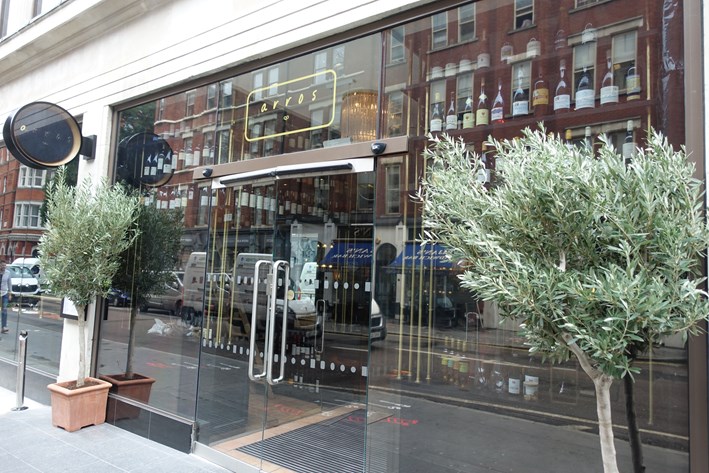

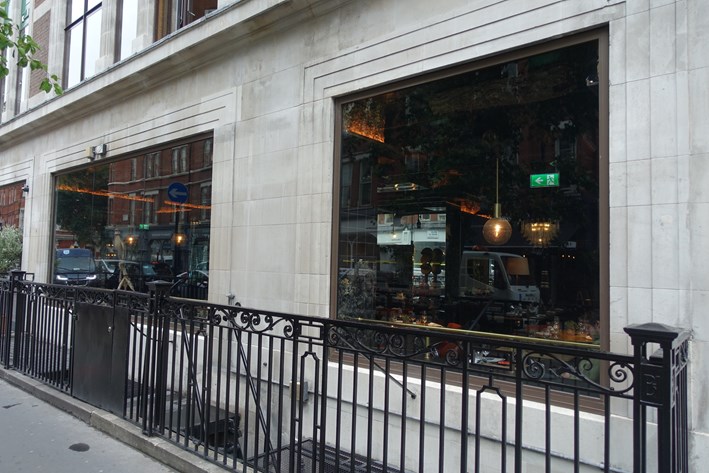
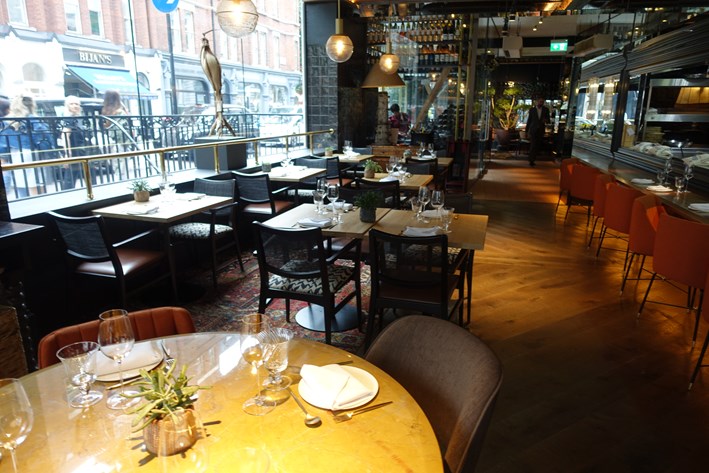
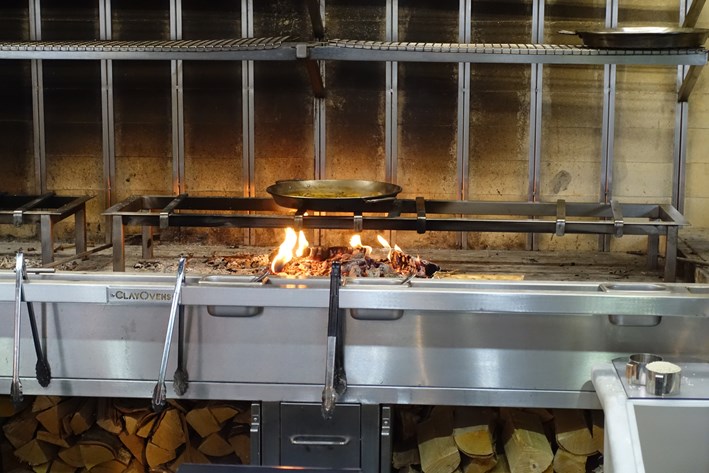
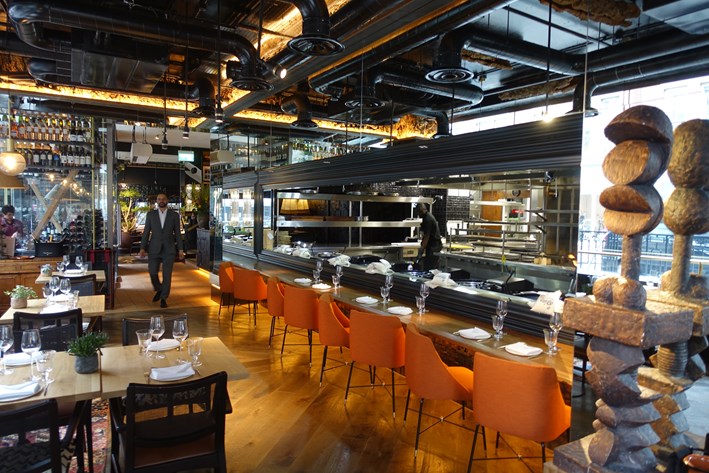
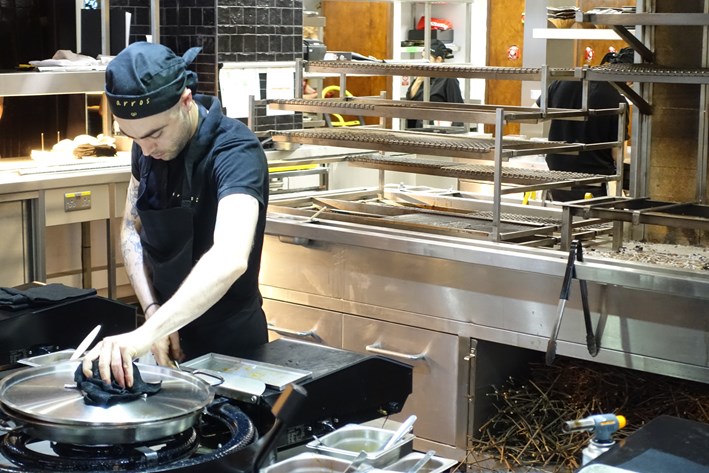
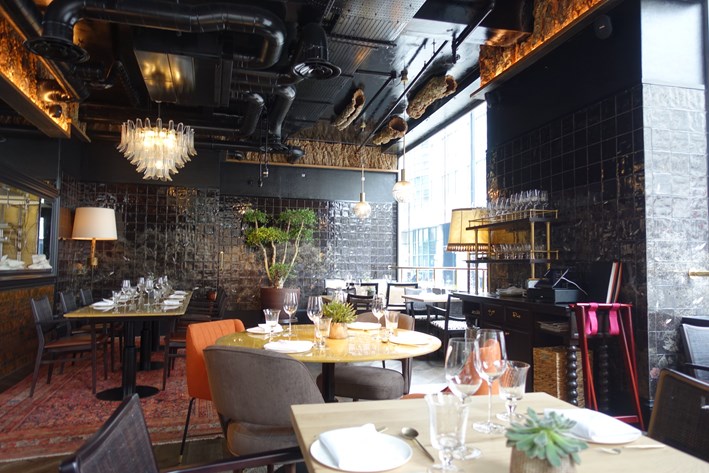
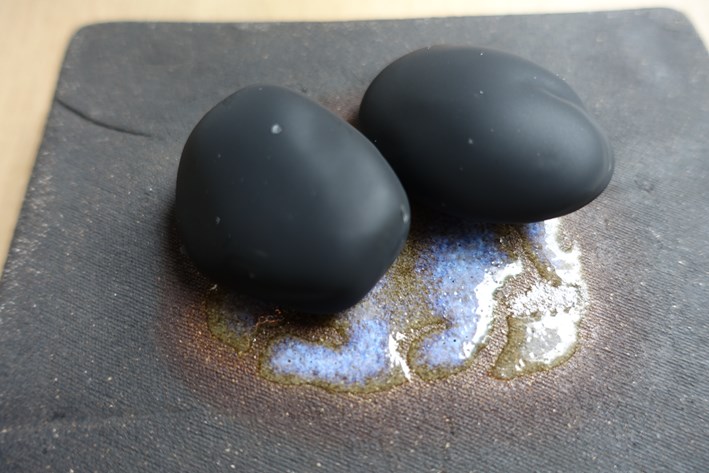
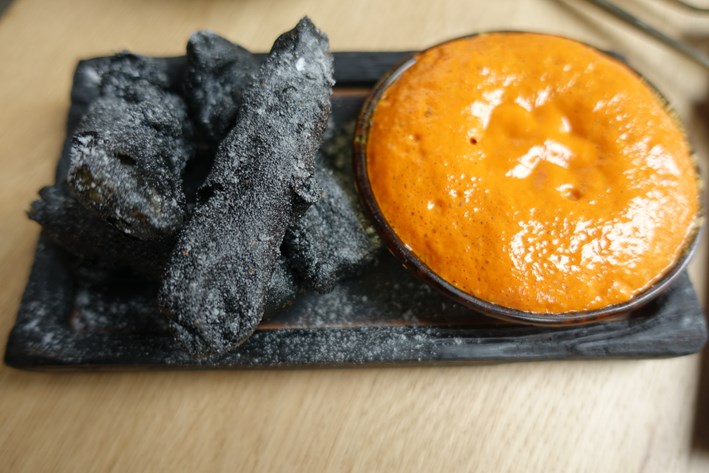
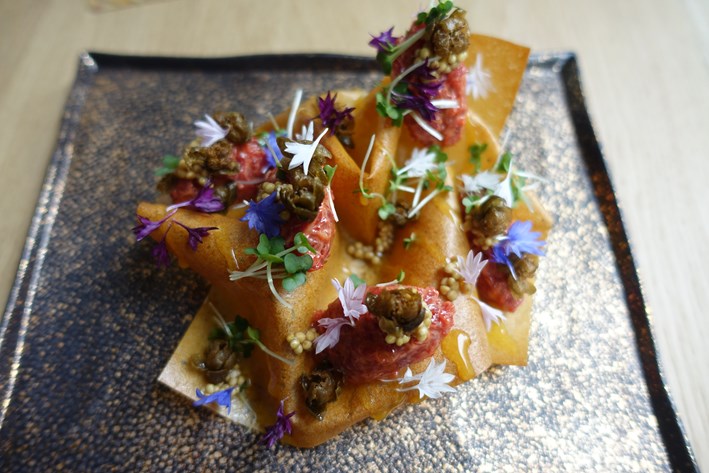
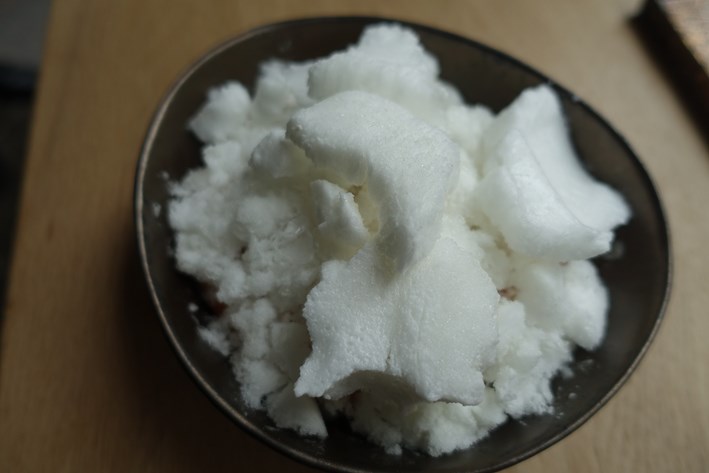
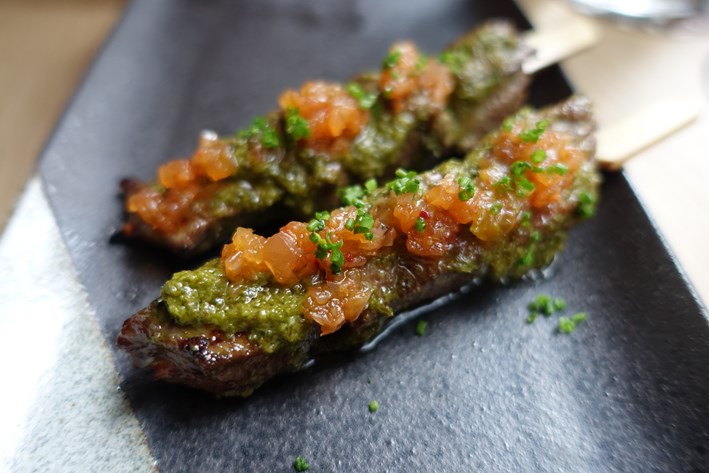
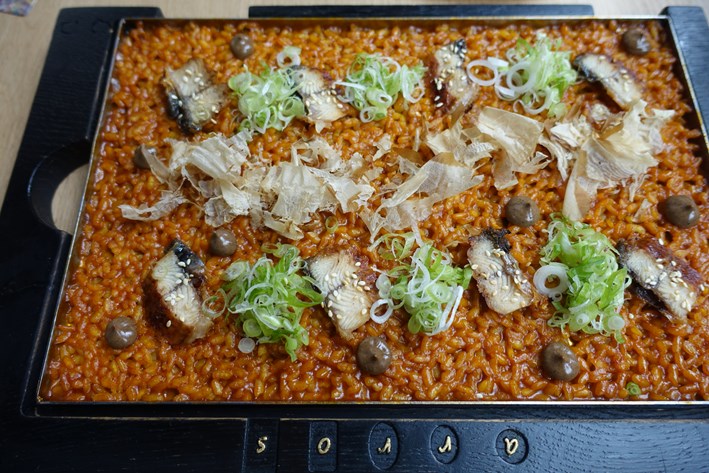
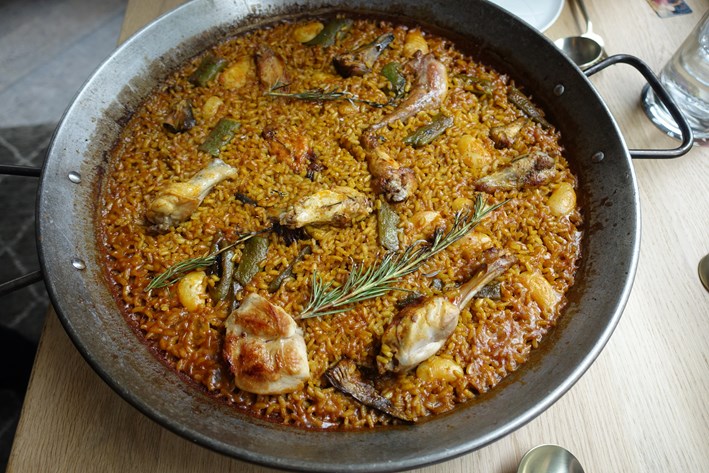
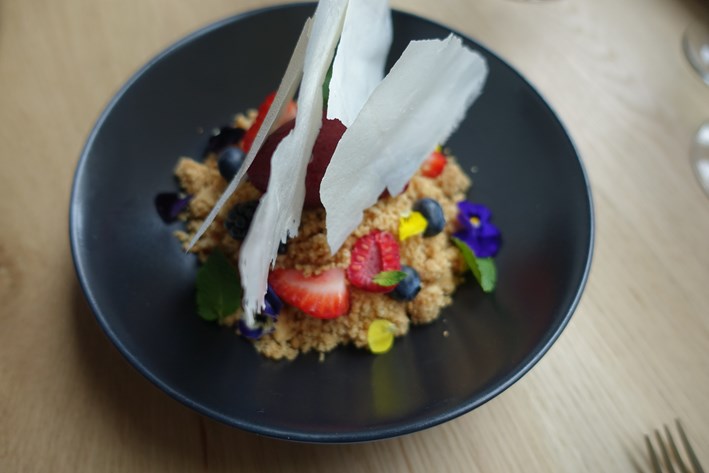
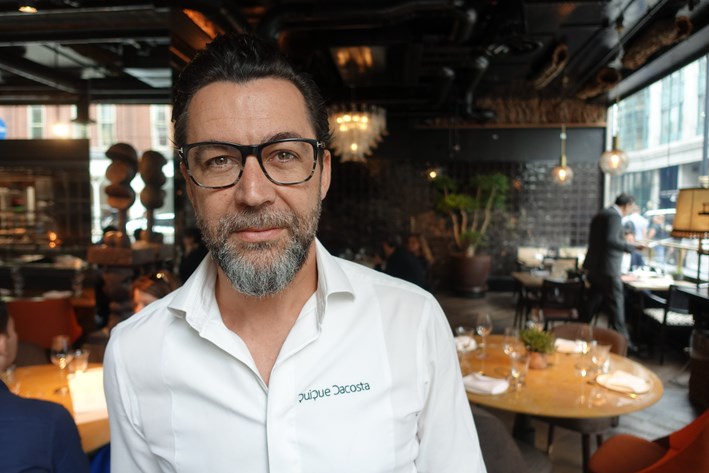

Sanj
I thought this place was overpriced, especially the paella dishes, the Mediterranean one came with 4whole prawns!!! I generally found the starters to be better than the mains.